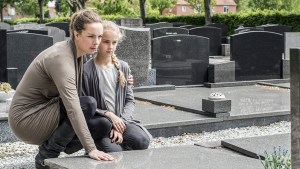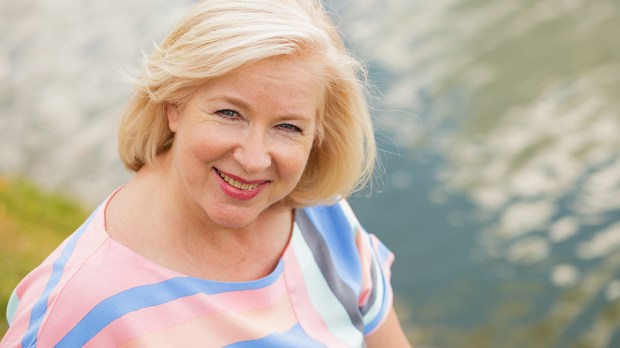Everyone knew Mirka … in her apartment building, at the neighborhood market, at the nearby park. Young soccer players on the way to their practice greeted her. Tipsy men by the liquor store greeted her. Everyone knew her.
It’s not surprising; she was always cheerful, always devoted, and always had a smile for others. That made her beautiful. All that positivity had a source, and Mirka didn’t hide it; after all, good things are meant to be shared.
This source of her positivity, as long as she could remember, had always been the loving and good God. She trusted Him immensely. How often she spoke of Him when she visited the sick and dying to tell them about the merciful Father, to comfort them with a vision of the heaven that awaits them, the land of rest and love. She believed in it so strongly that she could convince even the most hardened opponents of the Church. She was authentic, living fully what she believed.
Her faith freed her from fear of death
One day Mirka felt a pain in her abdomen. At first she ignored it. “That kind of pain is so common,” she thought to herself. This time, however, it wasn’t just an ordinary pain; Mirka had liver cancer. Doctors offered her no chance of survival. They gave her a few months, maybe a year. Humanly speaking, it was a fatal and dramatic prognosis that would destroy most people’s happiness.
But not Mirka. She continued as if everything were normal: still beautiful, still smiling, still living for others. The illness didn’t change her one bit. She still talked of the loving God. The priests visiting her wanted to cry when they saw her bravery, her faith, and her devotion.
“You’ve prayed so many times for healing of others, with good results. God has listened to you,” Fr. Marek reminded her during one of his visits. “Why don’t you want to pray for yourself now? God wants us to ask for what we need.”
“Because you see, dear Father,” she replied, as always humbly, with her eyes shining. “Those I prayed for had no faith. They were afraid of death. They were afraid of leaving, of pain. They were so sad in their lack of faith, so helpless, that I felt very sorry for them. So I prayed for the gift of health for them, so they would regain their faith. However, I personally don’t need to wait anymore. If God calls me, I’ll go.”
When Father Marek closed the door behind her apartment, his eyes filled with tears again — the same tears as the last time he visited her. Mirka continued to bear witness to her faith. She continued to preach the Gospel, in the most effective way possible.
Anger at God?
She died soon afterwards. Her funeral was well attended by the people she helped or wanted to help. They are the people who today testify about her sanctity — among them, her son Paul, who was a witness to her life up close.
“And you …” Father Marek began gently, “And you, Paul, are you not angry with God? Aren’t you mad at Him? You know best who your mother was, what she did for Heaven. Don’t you blame the Almighty for taking your mom so soon?”
“No, Father. I don’t,” said the young man. “Actually, I couldn’t be mad at Him if I wanted to.”
The priest had been expecting a completely different answer. He had prepared himself to give a long dissertation on the subject of human versus divine logic, about how hard it is for us to understand God’s plan. But no: he wouldn’t have to say anything this time. Instead, he had to listen.
“I couldn’t blame God, Father,” Paul continued confidently. “How could I now? After what I saw in my mother’s life, I know she wouldn’t forgive me for that.”
Father Marek only smiled.
The testimony of this holy woman had been effective. She had raised her son in such a way that the power and truth of the faith was evident to him; he had to believe, because of what he had seen.
He had witnessed those conversations, in passing, on the street; that smile; how his mother offered her suffering for others. And he saw her prayer, and its fruit. After such a testimony, he couldn’t be mad at God. Even though he didn’t understand what had happened from a human perspective, he knew that it all made sense. That’s what his mother had taught him.

Read more:
Padre Pio’s prayer to cast out fear, even fear of death

Read more:
Why our culture needs to be more “death positive”

